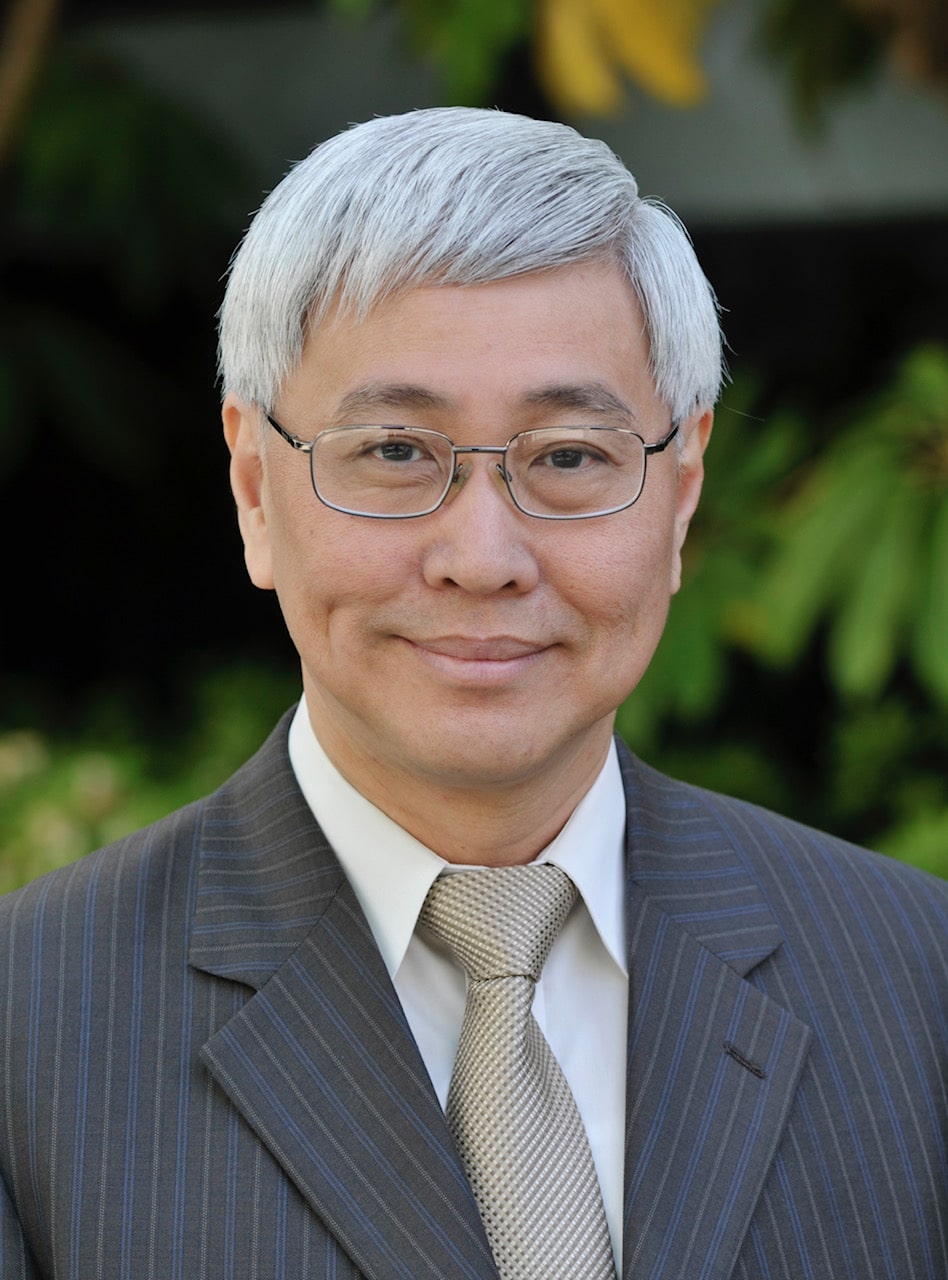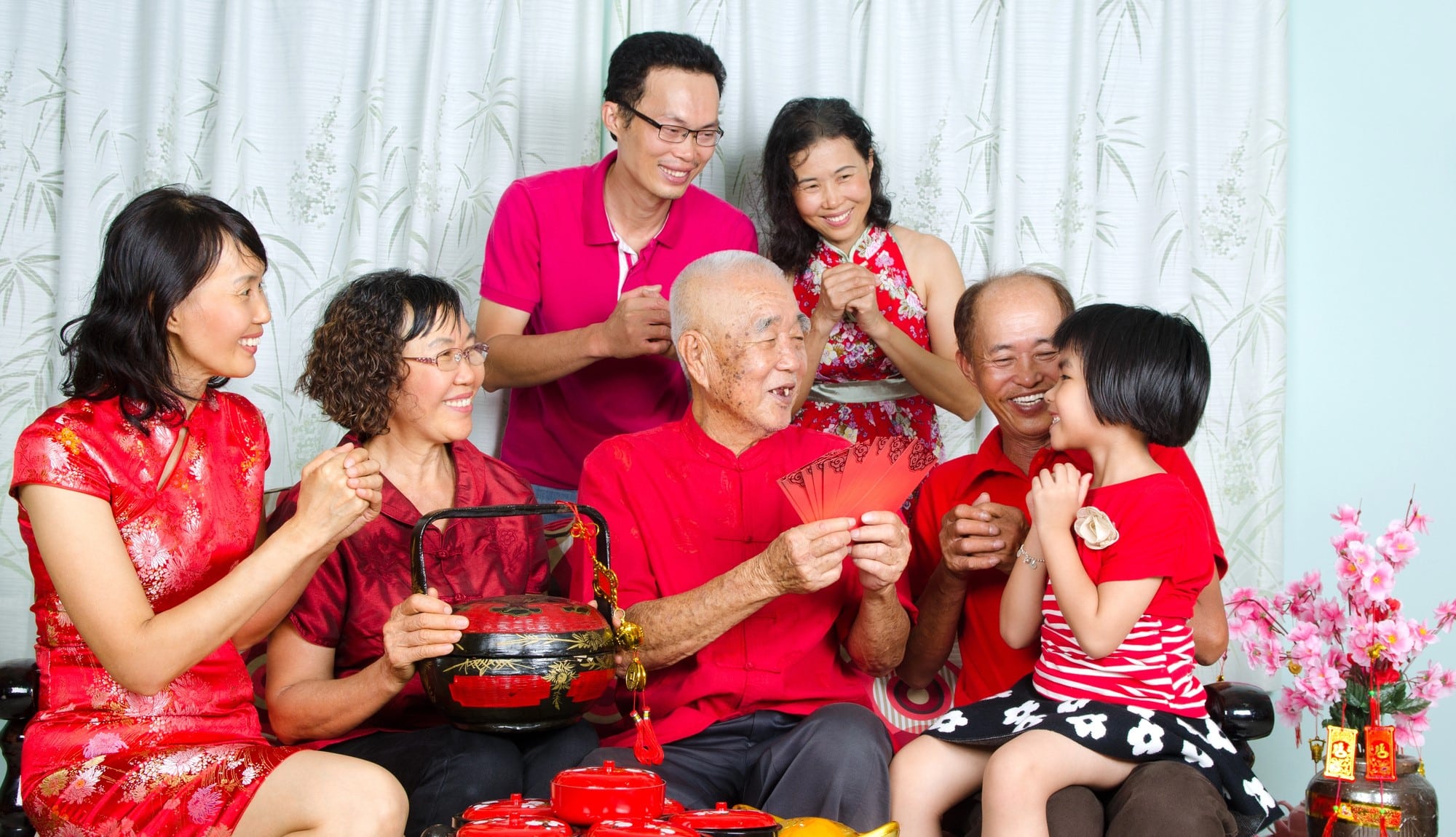There is rest for tired souls: Rev Dr Tan Siang Yang shares 3 means of grace
by Christine Leow // July 17, 2023, 12:18 pm

Until we experience eternal rest, Rev Dr Tan Siang Yang offers nine means of grace that help us to experience rest in this life. Photo by Andrea Piacquadio.
As long as you are alive, there is stress: “Eternal rest is something of the future. You and I cannot enter into complete rest this side of the Kingdom.
“Don’t even try.
“You can avoid or cope better with extreme stress. But daily stress happens as long as you breathe.”
With those sobering words, Rev Dr Tan Siang Yang started his session on finding rest in God. A clinical psychologist and Senior Pastor Emeritus of First Evangelical Church Glendale in the US, Rev Dr Tan was speaking at a two-day seminar in Singapore entitled “Bringing Healing and Wholeness to Families in Pain”.

Over the seminar’s two days, Rev Dr Tan Siang Yang shared insights on how to bring wholeness to families. Photo courtesy of Rev Dr Tan.
Over two sessions, he mapped out an understanding of rest and how to find a measure of rest in this life. Here is the first part of his sharing:
Types of rest
1. Eternal rest
This is the rest you get when you are in your eternal home in heaven, the type of rest that only Jesus can give because He died on the cross for us and rose again to conquer sin, Satan and death.
But that rest begins with the eternal life that can start to unfold now.
“You have eternal life the moment you say ‘yes’ to Jesus.”
Quoting Christian author Dallas Willard, who was known for writing about spiritual formation, Rev Dr Tan said: “The eternal kind of life that Jesus came to give you starts now.
“All you have to do to become a true Christian is to say, ‘Lord Jesus, I believe in You. Forgive my sins, and come into my heart as my Lord and Saviour. Fill me with Your Spirit.’ And it’s done.
“You’re born again at that moment that the Spirit baptises you in the Kingdom, and He fills you with the power and grace of God. You have eternal life. You start now, the moment you say ‘yes’ to Jesus.”
2. Physical rest
This involves being able to sleep well so that you are able to function well.
3. Emotional rest
When you experience peace most of the time and are stable, which means not experiencing depression or anxiety, then you have emotional rest.
4. Relational rest
“In relational rest, we actually serve as a Sabbath to one another.”
This is when there is peace in the majority of your relationships, when your relationships with family and friends are good.
“In relational rest, we actually serve as a Sabbath to one another. So, if I’m a really good friend to you, if I’m a really good brother- and sister-in-Christ to you, when you connect with me and we talk, you’re able to rest in the Lord through me.
“When I sit down with you and talk to you, I open my heart to you, I can rest in you because I trust you. I know you love me, you care for me.
“This is relational rest. Let’s learn to be that to one another.”
5. Spiritual rest
We can have the peace of God that surpasses all understanding (Philippians 4:6-7). When we experience the presence of God, we feel safe and secure in His love.
Means of grace
These means of grace allow us to enter into God’s rest and grace in a restless world.
1. Shepherd-centredness
Make the Lord our Shepherd: The secret to rest is that you must make Jesus your Shepherd (Psalm 23).
“It has to be personal. Open your heart to Jesus: ‘The Lord is my Shepherd, I shall not lack anything. He makes me lie down in green pastures, beside the still waters of rest.’
“So, the Shepherd always takes the sheep to restful places.”
“God always answers prayers. But not always with ‘yes’.”
Rev Dr Tan reminded that God has promised to meet our needs (Philippians 4:19, Matthew 6:25-34). That assurance allows us to “live a life relatively free of lack, free from worry and anxiety.
“As long as it’s good for your soul; He knows what’s best for you.”
To those who say that God does not answer their prayers because He did not give them what they wanted, Rev Dr Tan said: “God always answers prayers. Always. But not always with ‘yes’.”
He listed four ways in which God answers prayers:
- Yes, with pleasure, because God is a Father with a generous heart.
- Yes, but there is a lot more coming. This might involve waiting for more to unfold.
- No, not now, because the timing is not right. This would involve waiting.
- No, because what we want is not good for us and He loves us too much to give it to us.
Abide in Christ: Once Jesus is our Shepherd, we have to remain in that position. According to John 15:5, unless we abide in Christ, we can do nothing.
“Not just nothing of eternal significance; nothing,” said Rev Dr Tan.
“We must never think of God as the Eternal Examiner of a checklist of your spiritual life.”
“You know why? Because the Bible tells us in other places that, in Christ, all things hold together (Colossians 1:17).
“That means that in Christ, you breathe and have your being, Christian or not, because Christ is our Creator, Christ is part of the creatorship of God.”
This abiding involves being in fellowship with God through prayer and the Word, and spending time with God. How this can be lived out in our lives requires wisdom.
A new mother once shared with Rev Dr Tan her struggles maintaining a regular ‘quiet time’ with God because of the demands of caring for a baby. She had been trying to read through the Bible in a year, covering a few chapters a day but kept failing.
“This is good discipline but you cannot be legalistic, especially for new mothers. The Lord doesn’t have a checklist. We must never think of God as the Eternal Examiner of a checklist of your spiritual life. That is religion. That is not Christianity.”
“Meet God every day in creative ways.”
He shared: “When I spoke those words to her, it gave her tremendous freedom from false guilt and the legalistic practice of the spiritual disciplines.”
Instead, he encouraged the woman to “meet God every day in creative ways”, such as memorising Scripture, taking one verse a day: “While you’re feeding your baby, you can meditate on that verse.”
“So she did. And as she was feeding her baby, she suddenly had a vision that God was holding her and feeding her like she was His baby.”
There should not be a legalistic set number of minutes or hours. Rev Dr Tan himself worships and praises God while he does his gardening.
He also offered that when Dallas Willard was once asked how long he spent on his ‘quiet time’, he replied: “I have my ‘quiet time’ each day as long as I need.”
Rev Dr Tan emphasised: “Christianity is grounded and founded on a personal relationship of love between you and God through Jesus Christ. It’s all about love and grace.”
2. Spirit-filled surrender
The moment we accept Jesus as our Lord and Saviour, the Holy Spirit comes into us and baptises us into the Body of Christ. We become part of the Kingdom of God, a member of His Church.
What to surrender: When that happens, we surrender our lives to Jesus, committing every area of our lives – talents, time, treasures – to Him.
Who to surrender to: Living according to Ephesians 5:18, Rev Dr Tan encouraged participants to say a morning prayer: “Lord, here I am. I surrender to You and ask in the name of Jesus for the Holy Spirit to fill me.
“I know He is in me but I ask Him to fill me, to take control.”
This will allow us to be conscious of the Holy Spirit and be guided by Him. With that comes the ability to be more like Jesus and to have the peace that surpasses understanding (Philippians 4:7).
How to surrender: This involves giving up control.
“Galatians 5:22-23 is a crucial text to understand the Holy Spirit’s fruit. I want you to notice this in the Greek: It is singular,” said Rev Dr Tan.
“Peace or rest is the Holy Spirit’s work. I find this so refreshing.”
“The fruit of the Spirit is love, agape. But it is also manifested in eight other aspects – joy, peace, patience, kindness, goodness, faithfulness, gentleness and self-control.
“Peace is part of the one fruit of the Holy Spirit. Peace or rest is the Holy Spirit’s work. I find this so refreshing and so freeing as a Christian.
“As a Christian, my experience of peace and rest is not dependent on my ability to stay put in a place to focus on a meditative mantra. My peace is a gift from God and the fruit of the Holy Spirit (John 14:27).”
Rev Dr Tan also mentioned that there are times when the Holy Spirit may lead us “into the wilderness to be tempted” (Matthew 4:1-11), just as He did Jesus.
“Jesus said ‘no’ to all the temptations. He overcame the evil one and He can help you and me to overcome the evil one in our lives.”
3. Solitude and silence
This is included among the spiritual disciplines.
“Use the spiritual disciplines to come to know God better and to be more filled with Him, although the Holy Spirit can fill you any time He wants, any way He wants.”
The secret of transforming power: Quoting Dallas Willard again, Rev Dr Tan said: “It is virtually impossible to live the spiritual life without solitude and silence.”
This is not about spending time in prayer and reading the Bible because those require words and active thinking. Solitude and silence is simply being with God, just sitting with Him without words.
“Until we learn to be silent, we will not hear the gentle whispers of God.”
“Until we learn to be silent, we will not hear the gentle whispers of God because God is in a still, small voice (1 Kings 19:11-13).”
In a world so used to adrenaline-pumping activities, being quiet might not come easily.
“Adrenaline leads to the secretion of cortisol, which is a stress hormone. Corticosteroids are bad for you because they reduce your serotonin levels, which is needed for good sleep. When it affects your sleep, it affects your health.”
Quietness, however, does not mean inaction.
“Jesus ministered. He was busy. But Jesus was never under the illusion that the secret of His power was Himself.
“It was in connection, union and communion with the Father and the power of the Holy Spirit. In Luke 5:16, after being very busy, Jesus withdrew Himself into the wilderness and prayed.
“He needed to recharge. That’s the secret of transforming power – solitude and silence.”
Practice of solitude and silence: In solitude and silence, God will speak and sometimes Satan will attack, warned Rev Dr Tan.
But he encouraged the seminar’s participants to persist and to “start small”. Begin with half an hour and instead of reading the Bible and praying, learn to “breathe without words”. These wordless prayers are the antithesis of long drawn-out prayers.
“In solitude and silence, you’ll come to a depth in your life, in your ministry that you’ve never known before.”
Rev Dr Tan shared that during the pandemic years, he would walk 12,000 steps every day. As he did so, he was silent before God.
“I suddenly realised that I was spending about two hours or more every day with the Lord. And it makes a big difference.
“As I talk to you, God speaks to me from the depths of that union and communion with Him. Those times in solitude and silence have prepared me well to come and speak to you today.
“I recommend that to you. You’ll come to a depth in your life, in your ministry that you’ve never known before.
“There is no short cut. You must be in union and communion with God Almighty, in the power of the Holy Spirit.”
Look out for Part 2 of Rev Dr Tan Siang Yang’s talk shortly.
RELATED STORIES:
Avoiding burnout: The secret of Sabbath rest throughout the week
We are an independent, non-profit organisation that relies on the generosity of our readers, such as yourself, to continue serving the kingdom. Every dollar donated goes directly back into our editorial coverage.
Would you consider partnering with us in our kingdom work by supporting us financially, either as a one-off donation, or a recurring pledge?
Support Salt&Light


